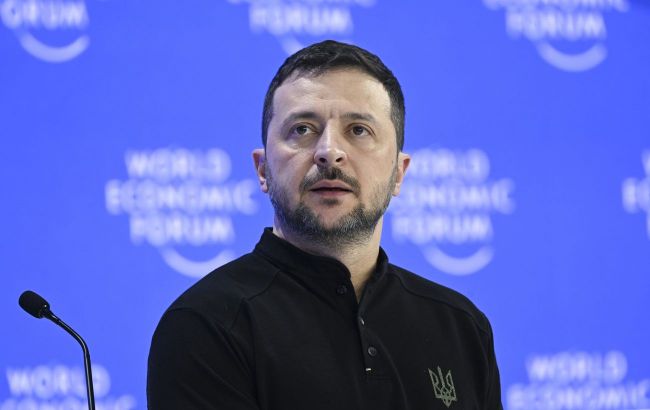Zelenskyy highlights one of key steps to peace
 Photo: President of Ukraine Volodymyr Zelenskyy (Getty Images)
Photo: President of Ukraine Volodymyr Zelenskyy (Getty Images)
Lowering prices for Russian energy resources, particularly oil, is one of the most critical keys to achieving peace. The main priority is to maintain pressure on Russia without slowing down, stated Ukrainian President Volodymyr Zelenskyy.
“We are coordinating our international efforts. Today, we held relevant meetings, focusing primarily on the US and our European partners. Peace through strength is possible, we are absolutely confident in this,” Zelenskyy said.
According to him, the main thing is to keep up the momentum and put pressure on Russia.
"Pressure must be applied to Russia, the sole entity who wants this war, who is responsible for this war. It is Russia that is trying to prolong the aggression and occupation," the President emphasized.
He underlined that energy resources, particularly oil, are one of the most important keys to peace and real security.
"Europe needs to cooperate more with America and other global partners, not with Russia, regarding energy resources. We are preparing our diplomacy and international communication to secure strong positions not only for Ukraine but for all of Europe," Zelenskyy added.
Today, US President Donald Trump, in a speech at the World Economic Forum in Davos, called on Saudi Arabia and OPEC to reduce the price of oil again. In his opinion, this will help to end Russia's war against Ukraine faster.
In addition, it was reported earlier that the G7 countries are studying the possibility of increasing the price cap for Russian oil. Currently, the price is $60 per barrel.
The EU recently introduced the 15th package of sanctions against Russia, which was aimed at Russia's shadow fleet. The sanctions list includes 52 vessels from third countries.
On January 10, the United States imposed new large-scale sanctions against the Russian energy sector, including the largest oil company Gazprom Neft and Surgutneftegaz, to prevent Moscow from waging war on Ukraine by depriving it of billions of dollars a month.
The sanctions also target more than 180 vessels and dozens of oil traders, oil industry service providers, insurance companies, and energy sector officials.

